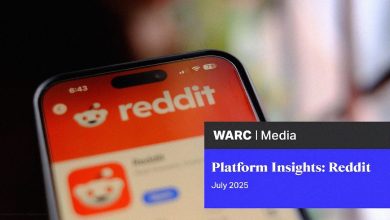Manila, Philippines – About 200 educators recently joined the E-Skwela webinar hosted by Globe myBusiness on how to migrate classes online as schools have been closed under the COVID-19 enhanced community quarantine protocols.
A robust discussion on the Philippines’ e-learning roadmap took place among a panel of experts that included Mark Arthur Payumo Abalos, Education Industry Lead at Globe and Learning Technologies Scholar; Bro. Dennis Magbanua, FSC, Community Director at La Salle College, Hong Kong; Rogelio Dela Cruz, Head of the Center for Instruction, Research, and Curriculum- Education Technology Office at De La Salle College of Saint Benilde; Miguel Bermundo, Head of the Citizenship and Advocacy Marketing Division at Globe; and Gerson Abesamis, Executive Director of Habi Education Lab and Senior Lecturer at UP Diliman and Miriam College.
Challenges in digital access, security and familiarity
The discussion focused on the aspects of online learning for students as a way to address the current challenges in the educational school system. It was also a forum for sharing best practices among the experts, along with ideas on how to build on e-learning as a complementary tool even during normal school operations.
Abesamis cited that while many teachers have already been reaching out to students and fellow faculty members with communities on Facebook Messenger, some have also started creating their own short learning videos. This has given opportunities for self-paced independent learning and critical thinking. However, there are still challenges that educational institutions face, including readiness among the faculty in conducting online classes with Abalos mentioning connectivity as one of the problems facing teachers, along with what de la Cruz classifies as discomfort or even resistance from some members of the faculty with regard to conducting e-learning sessions.
Online safety for students is another concern brought up in the discussion, with Magbanua saying grade school students are usually accompanied by their parents when they go online. He added that there are a wealth of learning resources that can be found on the internet, but these have to be carefully curated for data protection and security purposes.
Early adoption models and necessity of a local roadmap
As for best practices, Magbanua talked about the Hong Kong model, where students have already become accustomed to e-classes even before the onset of COVID-19 which made the transition easier for them. This early adoption of digital learning has also been accelerated by sociopolitical factors such as city-wide protests that have forced some educational institutions to close normal operations since late 2019.
In support of this, fellow panelist Abalos mentioned that the answer to the Philippine challenge is to onboard teachers as quickly as possible. He adds that the key to this is laying down the necessary groundwork and a roadmap towards making online learning a complementary part of education even after the crisis has passed. Part of such a roadmap is the identification and familiarization of digital tools that are teacher-ready and child-friendly.
Complementing learning through new digital platforms
One of these digital tools is the recently launched Globe eLibrary. Globe eLibrary gathers together useful learning resources such as ebooks and educational videos in one website. The aim is to offer a platform where teacher-ready and classroom-friendly materials can easily be accessed by anyone, especially K-12 students.
According to Bermundo: It is a collection of free local and international titles under public domain, ranging from classic storybooks and novels curated for K-12 learners. It is also home to local storybooks and learning materials authored by public school teachers and members of the DepEd Bureau of Learning Resources.
“We are looking forward to populating it with more content with the help of our local and international partners,” Bermundo added.
The site, which was designed for easy navigation, can be accessed for free by students, teachers, and the general public at www.globeelibrary.ph so that learning can continue even as they stay #SafeAtHome.
For more updates on upcoming Globe e-learning webinars and information on Globe eLibrary, visit www.globe.com.ph.










